Alphabetizing Worksheets for Ages 4-6
5 filtered results
-
From - To
Discover engaging Alphabetizing Worksheets designed specifically for children aged 4 to 6. Our colorful and interactive worksheets provide young learners with the foundational skills to arrange letters, words, and phrases in alphabetical order. These activities support early literacy development by enhancing vocabulary, sorting, and organizational skills in a fun and dynamic way. Designed by educators, our resources foster cognitive growth while keeping children entertained. Each worksheet offers clear instructions and visual aids to guide learners through the alphabetizing process, making it suitable for home or classroom use. Encourage your child's learning and confidence with these essential alphabetizing exercises today!
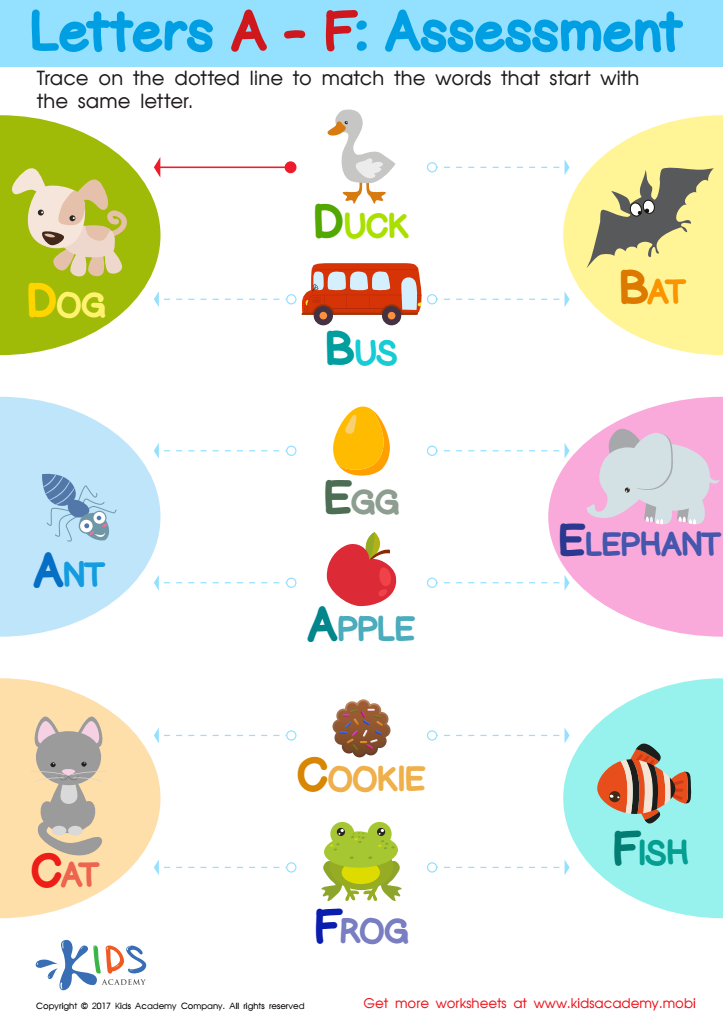

Letters A - F Worksheet
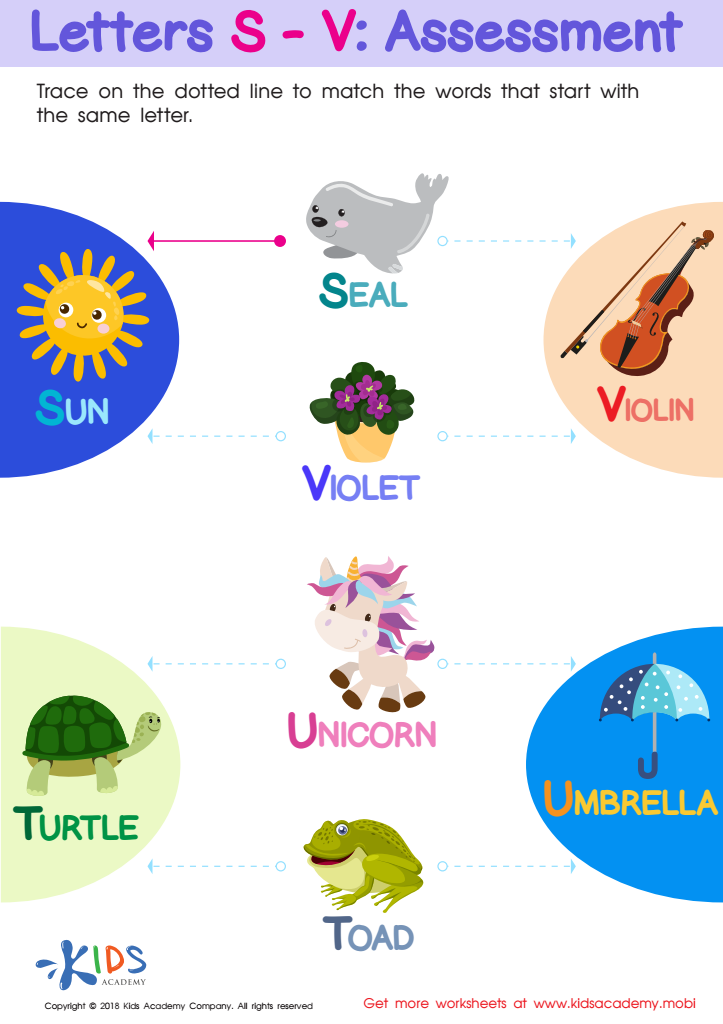

Letters S - V Tracing Worksheet
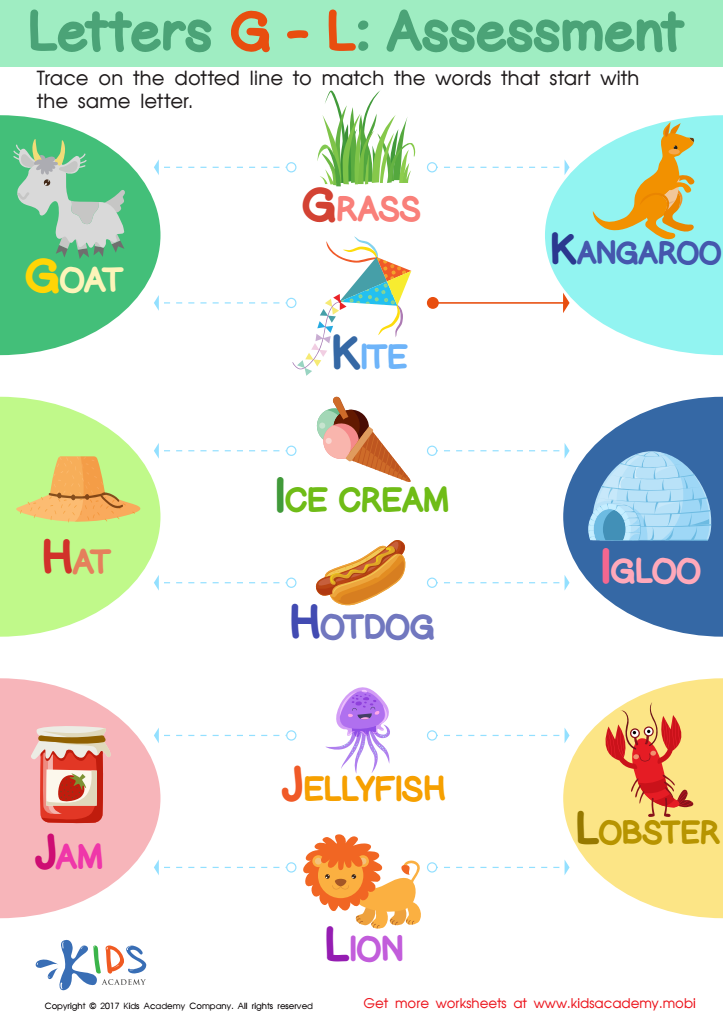

Letters G-L Worksheet
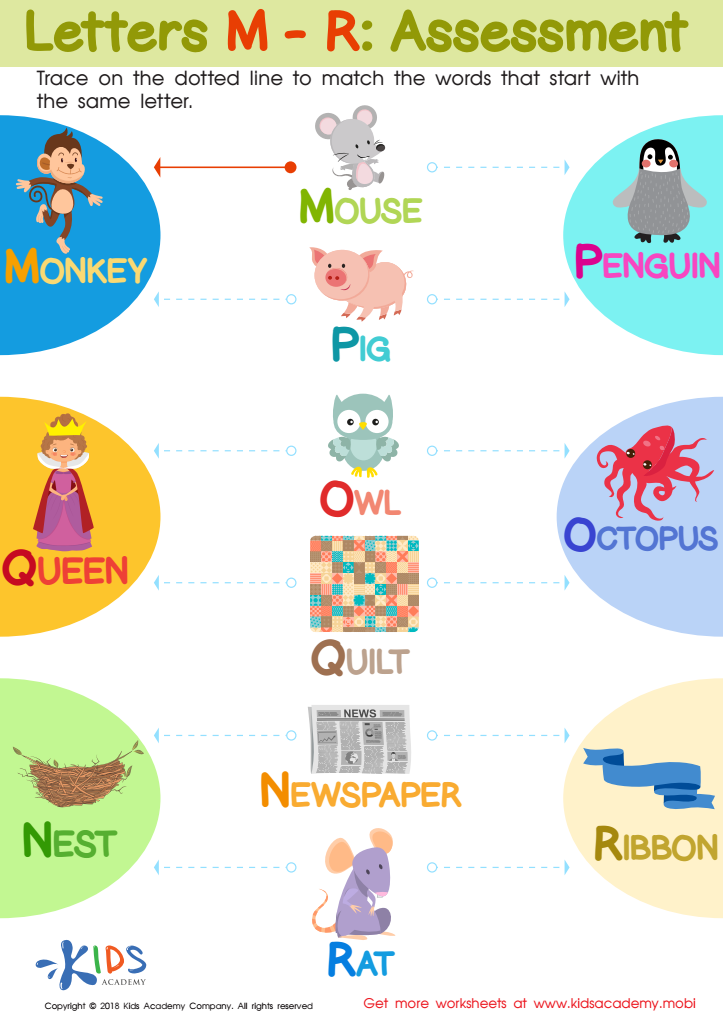

Letters M-R Tracing Worksheet
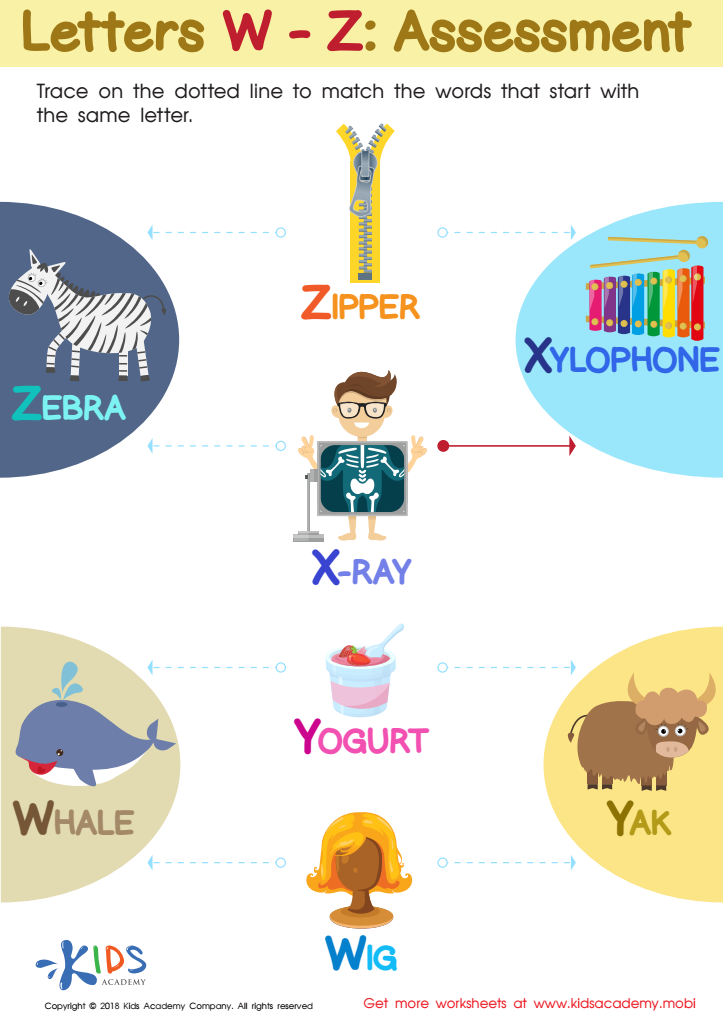

Letters W–Z Tracing Worksheet
Alphabetizing is an essential skill for children ages 4-6, laying the groundwork for literacy and effective communication. Understanding the alphabet helps young learners recognize and decode words, paving the way for reading fluency. At this age, children are naturally curious and eager to engage with language. Alphabetizing activities foster this curiosity while developing critical thinking and organizational skills.
Additionally, learning to alphabetize encourages children to work collaboratively, as they often engage in group activities that involve sorting words or items. This social component enhances early teamwork and communication skills. Moreover, alphabetizing boosts vocabulary development, allowing children to explore new words and understand their meanings as they practice.
Parents and teachers should care about fostering these skills during early education, as they are integral to academic success in later years. Establishing a solid understanding of the alphabetical order helps children navigate classroom environments and improves their overall confidence in literacy-based tasks. By providing support and engaging activities that involve alphabetizing, adults play a crucial role in nurturing children’s love for language, setting a strong foundation for lifelong learning.
 Assign to My Students
Assign to My Students








